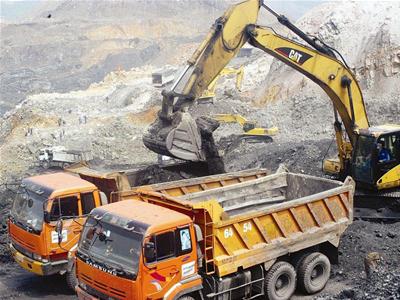|
|
| Coal, ore export taxes to rise |
4/25/2009 11:40:00 AM
Export taxes applied to crude oil and mineral products are set to increase on January 1, but law markers have turned back a Government proposal to raise the maximum export tax rate on rice and other agricultural products. The National Assembly Standing Committee last week extended its in-principle approval to a Government proposal to raise the ceiling export tax rate on coal from 20 percent to 45 percent; and on crude oil from 20 percent to 50 percent.
Export minerals, including iron, steel, copper, lead and zinc, could be taxed at up to 40 percent, under the proposal.
The Standing Committee refused, however, to approve the proposal to raise the ceiling export tax rate on rice and other agricultural products from 3 percent to 50 percent, saying that it was generally the preferred policy to encourage rice exports.
The Government had other, non-tariff measures at hand to control exports in times of shortages, the committee said.
Minister of Finance Vu Van Ninh argued, however, that if the export price of rice were at 500 USD per tonne, the Government would not impose the export tax, but if export prices rose to 900 USD per tonne, the Government would have an opportunity to tax the windfall profits of exporters.
An export price of 500 USD gave exporters a 30-percent profit margin, but if prices skyrocketed to 900 USD, the margin would leap to 70 percent, Ninh said.
In approving a higher maximum export tax rate for coal, however, the Standing Committee agreed with Ninh’s argument that, with the nation project to begin importing coal during 2012-15, it was illogical now to be encouraging coal exports.
Coal produces have been encouraged to export by existing low tax rates, however, with domestic prices controlled to such major users as the electricity, paper, cement and fertiliser industries, which together make up 60 percent of national demand for coal, Ninh said.
With these price controls now partially lifted, coal producers can afford to pay a higher export tax rate, he concluded, and the higher rates would further the public policy goal of discouraging coal exports.
“Demand for coal for the electricity sector is high. If the nation continues to export coal as at present, it will eventually be forced to import coal at higher prices,” said Ha Van Hien, chairman of the National Assembly’s Economic Commission. Hien urged the application of export quotas to coal, in addition to higher export taxes.
Nguyen Van Thuan, chairman of the NA’s Legal Commission, also urged the Government to raise not only the ceiling but also the floor rates for export taxes, with many of these taxes still having a floor rate of zero.
Thuan supported higher export taxes on coal and mineral ores but argued against higher taxes on agricultural products, saying exports of the latter were to be encouraged, not discouraged.
The Ministry of Finance and relevant offices were scheduled to submit final export tax rates to the chairman of the National Assembly on Nov. 25 for official approval. |
| VNA |
| |

